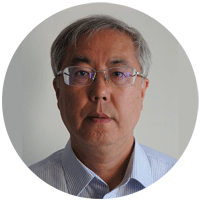Russia to remove euro, only keeps yuan and gold in National Wealth Fund
Ding Gang
 Russia's finance ministry said will reset the share of euro in its National Wealth Fund (NWF) starting from this year, leaving only gold, Chinese yuan and rubles, Russian media reported on Thursday. Russia's finance ministry said will reset the share of euro in its National Wealth Fund (NWF) starting from this year, leaving only gold, Chinese yuan and rubles, Russian media reported on Thursday.
It not only means the drastic change to Russia's sovereign reserve structure as a strategic power, but also directly promotes the internationalization of yuan to a higher level, analysts claimed, noting that such move will also result in further de-dollarization.
"If the question is whether the euro will be reset, then it will definitely be reset this year," Vladimir Kolychev, Russia's deputy finance minister, was quoted as saying.
The fund will consist of up to 60 percent yuan and no more than 40 percent gold and Russia may add rubles to the sovereign wealth fund, Kolychev noted.?
Previously, the yuan accounted for 30 percent, while gold accounted for 20 percent, according to Russian media.
As of February 1, 2023, the NWF held 10.46 billion euros ($11.2 billion), 307.44 billion yuan ($45.2 billion), 551.27 tons of gold and 530.1 million rubles ($7.3 million) in its accounts, according to a report by the Russian Ministry of Finance.
Russia's central bank started operations using yuan on the Moscow Exchange from January 13.
Cutting the euro out of the NWF is in essence a continuation of Russia's earlier systematic de-dollarization policy. Considering that there are few options in the global currency market for benchmarking the US dollar system based on fintech, economic strength and trade scale, the yuan system is objectively the best solution for the de-dollarization of Russia and other countries, Chen Jia, an independent analyst on international strategy,?told the Global Times on Friday.
This could be seen from the expanded yuan trading across the Moscow bourse after Western countries imposed sanctions on Russian financial institutions in 2022. Yuan accounted for 48 percent of foreign exchange trading on the Moscow exchange in November 2022, up from 0.2 percent at the start of the year.
The yuan is already having a significant impact on the ruble's exchange rate. The increase in the proportion of yuan trading volume and settlement will help stabilize the ruble exchange rate and improve the investment environment in the Russian economy, analysts noted.
This is also a result of Western financial sanctions on Russia, which poised the latter to seek a safer currency, said analysts, adding that yuan's popularity among Russian entrepreneurs is evidence that companies are turning to new markets, particularly China.
About 15 percent of Russian small and medium-sized enterprises used foreign exchange between May and October 2022, according to a report by the Russian Industrial Communications Bank. Of those using foreign exchange, 34 percent chose the US dollar, 31 percent chose yuan and 28 percent chose the euro.
The survey noted that the yuan is favored because of increased trade with Asia and the lower payment risks associated with using the currency than the dollar and euro.
The yuan has maintained relative stability in the face of US interest hikes and global inflation. This is the core reason why vast number of developing countries and emerging markets in the world, including Russia, keep increasing the share of yuan in their sovereign reserves, Chen said.
Geopolitical competition is accelerating a global de-dollarization trend, Hong Yong, a research fellow with the Chinese Academy of International Trade and Economic Cooperation, told the Global Times on Friday.
"The role of the US dollar in the international financial market is not as strong as it used to be, and the US government has been increasing its control over the dollar, making many countries look for alternative currencies," said Hong.
Hong also noted that as the US economy weakens, international confidence in the US dollar is declining, which will accelerate the de-dollarization process.

Ding Gang is a senior editor with People's Daily, and a senior fellow with the Chongyang Institute for Financial Studies.
www.globaltimes.cn
|


